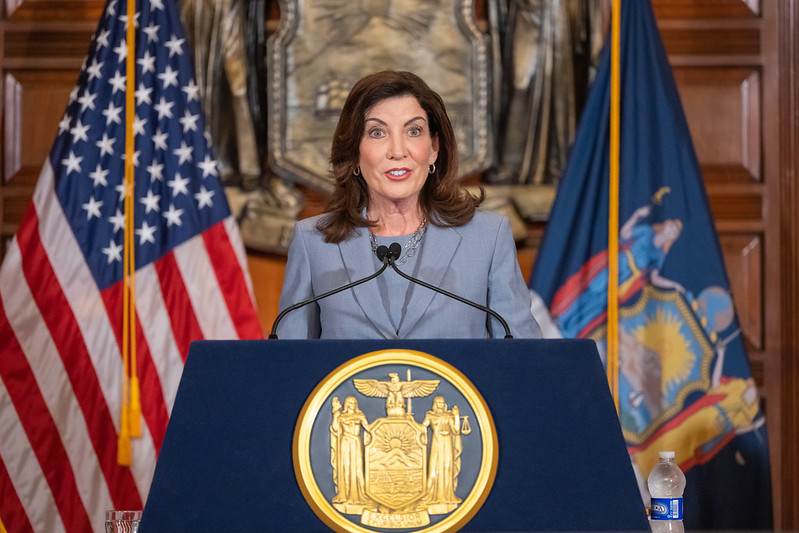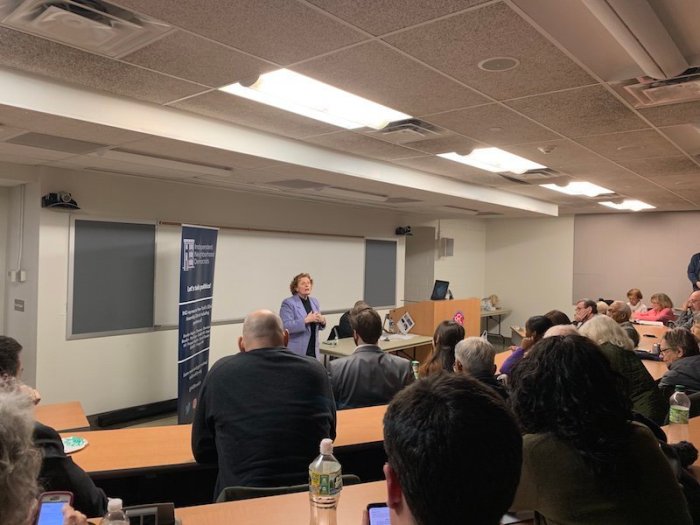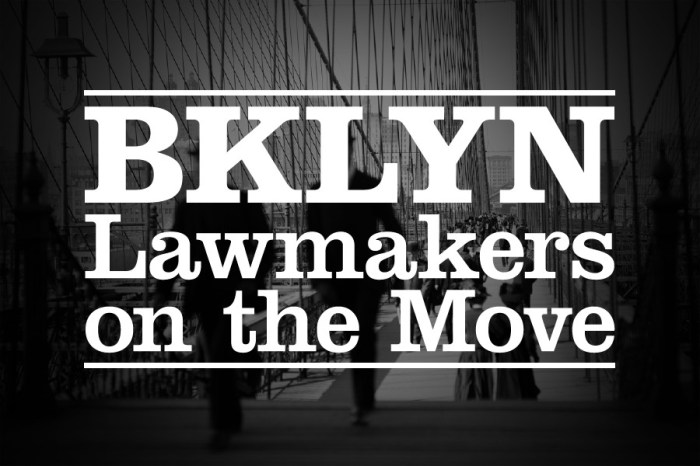On the 32nd anniversary of the passage of the Americans with Disabilities Act (ADA), Governor Kathy Hochul signed a package of bills into law that grants those with intellectual and developmental disabilities the right to make their own life decisions.
Hochul said the ADA, which granted those with disabilities fundamental rights and protections in areas of American life from education to employment, was a “monumental victory for civil rights.”
“It has always been the touchstone, an opportunity for us to say ‘does it meet the standards that were set at that time, when we decided it was time to right the wrongs of the past and have true equality and how people in this country are treated?’” Hochul said. “It really has been, since that time, the most comprehensive piece of legislation that pertains to people with disabilities. It really was a monumental victory for civil rights, because it finally enshrined a fundamental truth that people with disabilities deserve the exact same opportunities as everyone else.”
The governor signed the bills at the CUNY Graduate Center Wednesday afternoon. Also in attendance were state Senator John Mannion (D-Syracuse) – chair of the Senate’s Disabilities Committee, Assembly Member Jo Anne Simon (D-Brooklyn) and Independent Living, Inc President and CEO Doug Hovey.
Hochul said the central law in the package – S7107B, sponsored by Mannion and Simon – creates a formal legal process for those with intellectual, developmental, psychosocial and cognitive disabilities to be able to make their own decisions about their lives, instead of leaving that decision-making to a family member or legal guardian.
“There should not be an automatic presumption that someone else has to make the decisions for them. I’m glad we’ve evolved to that point today. But other than just saying it, let’s make it the law of the state of New York,” Hochul said.
“Before we signed this, people living with disabilities, when they turned 18, the only formal process has been through guardianship and that’s it. And that was decided through a court system, again taking away the right for someone to have control over their own lives. But people want autonomy in their lives. They want to make decisions. And now they’ll be able to be the decision maker. And it allows them to have a roadmap to make decisions about their own lives,” she added.
The law would allow people with intellectual and developmental disabilities to choose a process known as “Supported Decision-Making” as an alternative to guardianship when they reach adulthood on their 18th birthday, according to a release from Hochul’s office. Supported Decision-Making allows individuals with disabilities to make their own decisions with the support of a trusted person in their life.
Under the law, they can reach a legal agreement known as a “Supported Decision-Making Agreement” with that trusted person that clearly states the scenarios in which they’ll need support from that individual.
There’s already proof that giving those with cognitive disabilities more autonomy works, Hochul said, because the law is based on a pilot program run by the state Office for People With Developmental Disabilities (OPWDD) that’s been in place since 2016.
To give an example of how powerful it can be to let those with those with intellectual and developmental disabilities make their own decisions, Mannion reflected back on his 28 years as a high school teacher.
“I sat in those special education meetings, sometimes the student was there and sometimes they weren’t,” Mannion said. “And when they were there, the adults in the room felt like we knew best. And then that student would chime in and say ‘actually I don’t want to take that course.’ And there was such value to that. And it changed the way that I taught. And it changed the way they sat in those meetings.”
The package also includes that direct OPWDD to launch a public awareness campaign on combating negative stereotypes of people with developmental disabilities, replaces the term “mentally retarded” in state law with the term “people with intellectual or developmental disabilities.” and drops the in-state residency requirement for benefiting from the New York Achieving a Better Life Experience (ABLE) program – to help pay for disability expenses.
While there is still much work to be done, Hovey said he remembers how much harder it was to live with a disability before the ADA was signed into law.
“I remember what it was like pre ADA, when there were no accessible entrances and bathrooms were not accessible,” Hovey said. “It was an entirely different world to live as a person with a disability back then. We’ve made tremendous strides since that time, there’s no doubt about that, both environmentally and in terms of the attitudes that recognize people with disabilities as valuable and valued skilled and contributing members to society.”
















